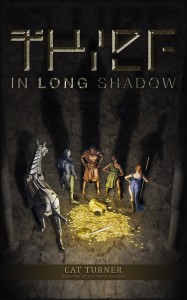In the spring of 2006, I wasn’t sure I would ever be able to hold down a full-time job again.
At the height of my earning power, I pulled down more than six digits a year, working for organizations (think marketing agencies and software development firms) that did their best to be fun, friendly places to spend time. I loved the work. In the late 1990s and the early 2000s, working with the web and social media, I felt like a modern-day pioneer, helping to open a new frontier. At Tribal DDB, the managing director finagled me a window office, complete with a breathtaking view of downtown Chicago and Michigan Ave. Clients trusted me; coworkers (almost universally creative, brilliant, charming) said kind and complimentary things that to this day make me blush.
Around 2006, though, everything fell apart. All the aspects of my work that I previously enjoyed – collaborating with others, sharing knowledge, producing great work, wowing C-suite clients with amazing presentations – became nerve-wracking drudgery. A shadow fell over my world. I felt frozen, and useless, and all I could think to do was run away from full-time work. For years, I was content to be a house husband, and lucky enough to have a spouse who gave me the time and space I needed to recover.
Finding my way back has not always been easy. First, and maybe most important, was recognizing that I needed professional help for the depression and anxiety that went untreated most of my adult life. Antidepressant medication helped. Talking with a therapist helped, too. For anyone reading who might be contemplating self-harm of any sort – anyone feeling that they just want to escape the world – I beg you, please, talk to your doctor, and be honest with her. Anti-depressant medications have side effects, and those aren’t any fun, but the meds played a significant role in helping me see the world more clearly. Yes, depressed people, it’s true: The world’s a better place with all of us in it.
Other strategies have helped me, too, and for everyone out there trying to manage perpetual gloom and tension, I wanted to share them.
+ Meditation. I can’t recommend highly enough Dan Harris’ book “Ten Percent Happier.” I wish I’d known how to meditate back when I had my glamorous window office; I might have enjoyed the view longer.
+ Mindfulness. I think there’s a time and a place for sitting in front of a TV set and watching something silly and entertaining, but I’ve also learned there’s value in trying to stay present in the moment. (My anxiety manifests most powerfully when I imagine some terrible future and start to ‘catastrophize,’ using a term from the mental health industry.) I’ve taken up playing bass guitar, and after a lifetime of ordering in or picking up fast food my spouse and I are making home-cooked meals every Sunday. Our pot roast is pretty good, but even better is the time spent together, fully engaged on what’s happening around us moment to moment.
+ Mild to moderate exercise. I’ve never been an athlete: you don’t need to be one, either. I take walks, and they’re particularly helpful when I’m feeling frustrated. I don’t think that airing frustrations in the office place – whether as gossip with a confidante or in an open confrontation – is a wise or effective tactic. Better to walk off that emotional energy and return in a more solutions- and team-oriented mindset.
+ Empathy and humility. If you’re feeling down, the notion of humility being an effective tool for feeling better might not seem logical. But my experience of depression and anxiety has been that both distort our perceptions of ourselves and others. Depression tells lies. Depression tells sufferers that they are remarkable, if only in how little value they provide to the world and their loved ones. Humility (as I understand the concept) denies that having depression makes you remarkably or exceptionally awful. Humility reminds us that we have much more in common with our fellow humans than we have differences. Empathy is another tactic that might seem odd to someone in the depths of severe depression, but I find it profoundly helpful to remind myself that the people with whom I interact are likely struggling with their own burdens. Depression tells people in its grip that everything is about you, but that’s just another lie.
It’s the spring of 2021, and I’m eager to find regular work again. It is, ironically, possibly the worst climate in my lifetime in which to find a job. The freelance clients who provided me with a steady dripline of work through the years have either lost their own jobs or seen their discretionary budgets slashed to nothing. That’s okay; I’m open to the idea that it’s time for me to leave behind the world of online marketing and user experience design and push into new realms. I’m also of the opinion that my own struggles with adversity have helped me become a better teammate, manager and employee.
I’m looking forward to practicing everything I recommend above, and if I slip up? I hope I’ll be working with a team that will hold me accountable.

